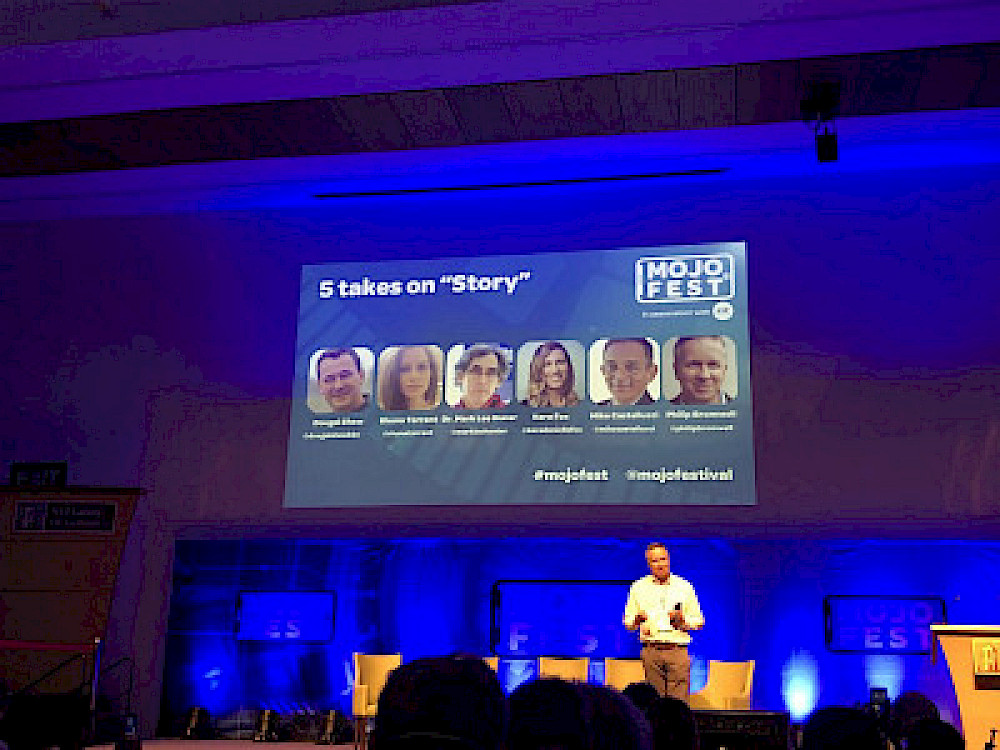The challenges faced by the news media in our digital age are well known. Unsurprisingly, the news media are keen to find new ways to connect with tech savvy audiences. One problem is that digital technologies and platforms can change quickly making it difficult to keep up. A deeper problem is that in trying to keep up with digital trends, the news media risk undermining the value of journalism in democracy.
To think about the future of journalism and democracy is to think about the future of journalistic work. As a new journalism graduate, I see and fear a future hunched over an iPad compiling listicles on “The 6 Most Shocking Moments on Last Night’s X-Factor”. Instead of journalists who speak truth to power, we seem destined to have undermined journalists who curate the internet for flashy GIFs.
The current emphasis on mobile journalism or “MoJo” as the future of journalism is very revealing. It heralds a future of cyborg foot soldiers - half-human and half-iPhone - marching through the streets to conduct bite-sized Vox Pops with their subediting and graphic design apps in tow. In other words, it represents graduates, already overworked and underpaid, shuffling around with half a traditional newsroom in their pockets.
Mobile journalism is a continuation of the neoliberalisation of work in developed countries over recent decades. It is driven by the corporatisation of media, an ideology which seeks to lower the economic costs of production regardless of the impact on quality. This is evident in the reduction of newsroom staff. Mobile journalism seeks to transform the careful and collaborative work of subeditors, video editors, graphic designers and journalists into the work of one over-worked, over-tired, and underpaid smartphone samurai.
A world buzzing with “MoJos”, in which six minute Facebook segments compete to gather likes and retweets, is anathema to the kind of prolonged, in-depth and well funded investigations that serve democracy. Such investigations, from the Iran-Contra affair to the Edward Snowden revelations, illustrate journalism’s ability to hold power to account. For much of today’s media, it seems difficult to squeeze in well-researched investigative journalism between the irreverent memes and bite-sized videos that neatly wrap up with the phrase “please like, review and subscribe”.
As the American academic Noam Chomsky writes, “the beauty of [concision]...is that you can only repeat conventional thoughts”. When journalism is flooded with nothing but clips friendly to a society high on caffeine and Flappy Bird, there is no room for insightful critiques of the status quo.
For all of that, it is undeniable that digital technologies have enabled fascinating and vital new forms of journalism from the independent investigations of the The Intercept to the muck-raking of our own rabble.ie. Interestingly, many of the important new investigative outlets – like The Intercept in the US or The Bureau of Investigative Journalism in the UK – rely on the philanthropy of multi-millionaires to fund their work. At the other end of the scale, new outlets filling a critical gap in local investigation – like the Dublin Inquirer – rely on small donations from readers. In the middle of this are the “legacy” and popular “digital born” news media desperately trying to find and secure their online position. In reality, most journalists continue to work in this area and we have to heed what is happening to journalism and journaltistic work among these outlets. Consider that the Huffington Post doesn’t pay its writers or that journalist is frequently ranked among the “worst of the worst jobs”.
When listening to proponents of technological fixes for future journalism, think about whose future is being described. Is it an organic future that seeks new ways of making journalism a vital element of democracy and the rights of ordinary people? Is it one that gives those same ordinary people who pursue it the promise of a secure livelihood? Or is it a future of iPhone wielding automatons with no time to think and investigate?
David O’Donoghue is a recent graduate of journalism at the University of Limerick.



